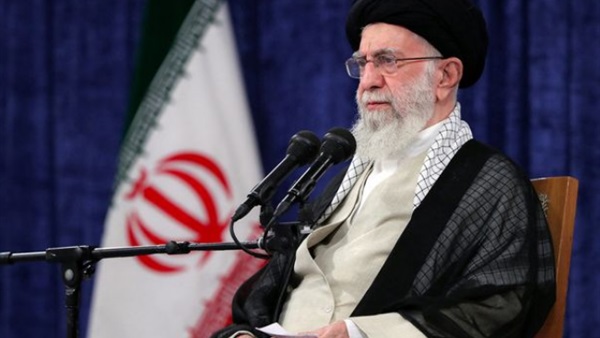Iran’s Supreme Leader Rails Against Protesters

Iranian
Supreme Leader Ali Khamenei doubled down Wednesday on his unsupported
accusations that the uprising rocking Iran is orchestrated by the country’s
foreign enemies, as authorities further tightened internet restrictions to make
it harder for protesters to spread information about the violent government
crackdown.
Meanwhile,
strikes by shopkeepers spread to Iran’s second-most populous city, Mashhad,
according to social-media posts. The city is a stronghold for the country’s
hard-liners, including Mr. Khamenei and President Ebrahim Raisi. Mashhad
shopkeepers joined strikes under way in the capital Tehran and other cities
across the country.
The death
toll from the uprising has increased to at least 201, including 23 minors,
according to the Norway-based Iran Human Rights nonprofit.
Demonstrations
began nearly four weeks ago when Iranians erupted in anger over the death of
22-year-old Mahsa Amini in custody of the morality police, which had detained
her for allegedly not adhering to the country’s strict Islamic dress code. The
protest movement initially coalesced around calls to abolish the mandatory
Islamic veil known as the hijab, but quickly expanded into calls to overthrow
the Islamic Republic.
The Iranian
leadership has shown no sign that it is willing to compromise.
Mr. Khamenei
repeated allegations that the “scattered riots” were designed by Iran’s
enemies, likely referring to the U.S. and Israel as in the past.
“As long as
the nation is on the path of the Islamic system and religious values, these
hostilities will continue and the only way to cure it is to resist,” Mr.
Khamenei said following a meeting with the administrative Expediency
Discernment Council, according to his website.
“The
country’s officials should also be careful that such issues do not prevent them
from their main responsibilities and duties in the domestic and foreign
arenas,” Mr. Khamenei said.
Following
mass arrests in recent weeks, dozens of lawyers gathered in protest Wednesday
in front of Iran’s Central Bar association, where security forces used tear gas
to disperse them, according to social-media posts.
Large street
protests have subsided and the uprising has moved into a new phase marked by
protests inside and around universities, and throngs of women, often as young
as teenagers, marching in the streets without the Islamic veil. Workers and
merchants have joined the protesters by organizing strikes in the oil sector, a
pillar of the country’s economy, and the bazaars, which have historically been
bellwethers of public opinion.
A
large-scale strike in Mashhad could have severe consequences for the
government. Home to a massive shrine commemorating a descendant of the Prophet
Muhammad, Mashhad is one of the holiest cities for the world’s Shiite Muslims,
who Iran claims to champion, and provides a key political and financial basis of
support for the leadership.
Mr. Khamenei
was born in Mashhad and studied at the city’s main Islamic seminary. Mr. Raisi
won last year’s election largely because of his broad support base in Mashhad,
where until 2019 he ran the Astan Quds Razavi foundation, the main economic
driver in the city. The foundation employs thousands of people and owns
property throughout the city.
Authorities
have restricted internet access since the eruption of the protests last month,
and on Wednesday the state cut off most if not all mobile broadband connections
in the capital Tehran, according to Amin Sabeti, a London-based Iranian cyber
activist. Mobile users were forced to use national mobile connections, which
are part of the so-called National Internet that allows access only to
Iran-based websites. Residents were still able to use the internet on landline
connections at home, but with the use of virtual private networks, several
residents said.
The
disruption in internet connections started around 9:30 a.m. local time on
Wednesday, according to the London-based internet monitor NetBlocks.
The Iranian
parliament earlier this year passed legislation that placed Iran’s internet
infrastructure under control of an agency controlled by the armed forces. The
bill also put into official government policy the deliberate slowdown, or
throttling, of foreign websites, which don’t comply with Iranian rules
including surveillance of Iranian users and censorship of online spaces.
Mobile
internet connections appeared to have been completely shut off in Kurdistan,
where Ms. Amini was from and which has seen large protests since her death,
according to relatives of residents there.
The Iran
Human Rights nonprofit warned that a bloody crackdown was likely imminent in
Sanandaj, the main city of the Kurdistan region.
In Brussels
on Wednesday, European Union officials agreed to impose sanctions on Iran’s
morality police and senior security officials involved in the crackdown on
protesters, diplomats said. The decision will be formally signed off on Monday
when EU foreign ministers meet.
The
sanctions, against 16 Iranian people and entities, will be the broadest the EU
has imposed on Iranian officials since 2013 and comes after similar measures
from the U.K., the U.S. and Canada.
However, for
now, there will be no sanctions against Iran for allegedly supplying drones to
Russia for use in the war in Ukraine. Two European diplomats said the EU would
likely take action over the drones, but that is likely to be discussed when the
bloc considers a new round of sanctions against Russia over the Ukraine war.
Speaking Wednesday,
European Commission President Ursula von der Leyen urged the Iranian regime to
end the repression against protesters.
“The
violence must stop. Women must be able to choose,” she said in a speech to EU
diplomats. “This shocking violence cannot stay unanswered. It’s time to
sanction those responsible for this repression.”









